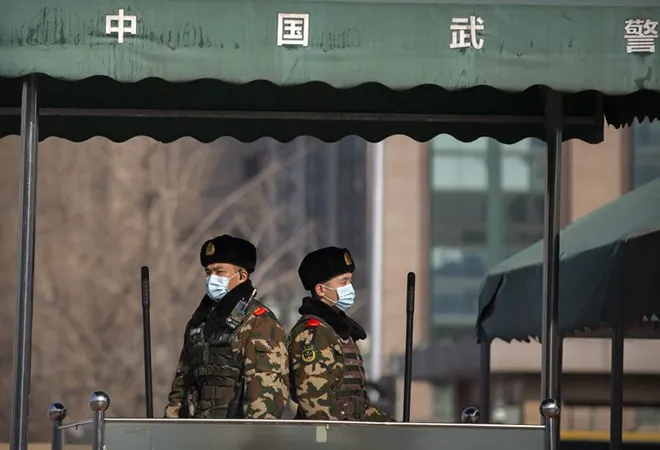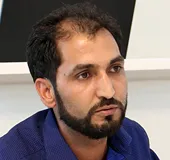
In a controversial decision the UN has appointed China to its Human Rights Council panel, where the communist nation with scant record for human rights will play a key role in selection of the UN’s investigators to monitor global civil and human rights violations. The investigations will look into freedom of speech, health, enforced disappearances and arbitrary detention-related human rights violations, of which, China is perhaps the world’s most guilty nation.
Shockingly, the news of the aforementioned appointment has ironically came at a time when China has been accused of heightened abuse of human rights of the Uyghur Muslims in its Xinjiang province and also increased forced organ harvesting of the minority Muslim community to save the lives of coronavirus-infected Han population. According to reports, China has sent thousands of Uyghurs to its manufacturing powerhouses at Hunan, Jiangsu, Jiangzi and Zhejiang to keep its factories running post the evacuation of the regular workers following the imposition of the ironclad lockdown in the wake of the onset of the outbreak in Wuhan. Reports have also exposed how the Communist government in China has used more than one and half million Uyghurs currently detained in ‘re-education camps’ or mass detention centres to be used a “kill-on-demand” emergency measure to harvest their organs to cater to the increased demand within the Mainland following the spread of the virus.
Xinjiang borders with eight countries, having area of 1,664,900 square kilometres, covering one-sixth of China’s total land area. The province constitutes 1.5 percent of the Chinese population and is home to thirteen recognised ethnic groups; the Uyghur Muslims dominating the region. Xinjiang has had a contested history from ancient past and was finally incorporated with the Chinese empire in 1978. Since 1949, the government had migrated millions of ethnic Chinese Hans from inner parts of the country to Xinjiang for political and economic reasons. The migration of the Hans led to demographic changes of the province as the percentage of Hans in the population reached 42 percent from 6 percent in 1949. The increased pressure on Uyghur culture, abject discrimination, severe economic exploitation, social discrimination and forceful destruction of religious ethos and traditional social structures increased the centrifugal tendencies in Xinjiang, leading to anti-China agitations by the Uyghur Muslims from time to time. The Communist government responded with increased human rights abuses after 1996, when Beijing started the Strike Hard Campaign, which led to a global uproar against China. Decades of abject discrimination and abuse culminated into the 2009 ethnic violence, the bloodiest recorded in contemporary Chinese history since the Tiananmen Square protests of 1989. According to Chinese official sources, 140 people died and more than 1,700 were injured. The authorities locked clamped internet shutdown for ten months and detained hundreds of Uyghurs resisting Chinese policies.
BRI and Xi Jinping’s ‘Great Wall of Steel’
Given its location at the crucial intersection of the ancient Silk Routes, Xinjiang today has great geo-strategic significance for China’s ambitious Belt and Road Initiative (BRI). Four of the six mega BRI corridors – including the controversial and sensitive China Pakistan Economic Corridor (CPEC), BRI’s flagship project – run through southern Xinjiang. For the security of the region and BRI projects, Party Secretary Chen Quanguo, a solider-turned-politician, known for his anti-minorities policies in Tibet, was sent to Xinjiang in 2016. Chen, an ethnic policy innovator, quickly rolled the securitisation strategy within a year and made Xinjiang the most militarised zone in China. However, since hard military measures failed to contain the sporadic incidence of violence, President Xi Jinping ordered the erection of a Great Wall of Steel around Xinjiang to enforce peace in the landlocked, geo-strategic and resource-rich region that provides the backbone of the BRI.
With Presidential consent, the CCP leadership in Beijing turned on the heat against ethnic Uyghur and Kazak Muslims. With increased high-tech surveillance and militarisation throughout 2016-17, the Uyghurs were profiled on the basis of DNA through mandatory health examinations. An estimated one-and-half-million were detained and sent to concentration camps for forced re-education and political indoctrination. In these detention centres, people are forced to pledge loyalty to the CCP, learn Mandarin and denounce Islam and their culture. The basis for the detainment, according to leaked documents from Xinjiang show that people can be sent to a detention facility for simply “wearing a veil” or growing “a long beard.” Furthermore, Uyghurs were also sent to the detention camps for violation of the family planning policy. From these detention camps, which according to Chen are manged like the military and defended like prisons, the ethnic Muslims are bundled out to inner parts of industrial China for forced labour and also killed for illegal organ harvesting to treat patients in the mainland.
COVID-19 and Uyghurs
According to the Australian Strategic Policy Institute (ASPI), a nonpartisan think tank, between 2017 and 2019, more than 80,000 Uyghurs were sent to work in other provinces of China directly from the detention camps. These Uyghurs and other Muslims are compelled to work for the production of 83 well-known brands. When the pandemic was at its peak in China, on 22 and 23 February, more than 400 Uyghur youth were transferred to the provinces of Jiangxi, Zhejiang and Hunan, which were heavily at risk with respect to coronavirus. On 26 February, additional 135 workers were sent for summer work and another 242 workers from Kashgar were sent to Changsha. At different parts of Khotan, 30,000 workers were asked to resume to their duties on 25 February despite the outbreak. Dolkun Isa, head the Munich-based World Uyghur Congress (WUC) in an interview to Radio Free Asia (RFA), said, “There is no guarantee that these Uyghurs will come home alive. China must stop forcing Uyghurs to go to the mainland and work as cheap labour under the threat of the coronavirus.”
Within the detention camps, while the provincial government restored normal activities from 12 March giving Xinjiang a coronavirus clean-chit, the People’s Daily leaked official Chinese documents listing official warnings about the danger of outbreak in detention camps. The provincial government has since stepped up on organ harvesting. Bitter Winter, a publication which tracks China's human rights record, wrote: "Around the world, waiting times for a single lung from a suitable donor could be years. China has shown this week that it need only few days, for two perfectly matched lungs to be rustled up." The sudden reduction in waiting time for organ transplantation raises suspicion as also hints towards a large-scale unethical practices employed by the country. For example, China has one of the lowest organ donor rates in the world, with a voluntary donor rate of just one for every two million citizens. According to the Journal of Biomedical Research; Of the 1.5 million Chinese citizens in need of an organ transplant donor each year, fewer than 10,000 receive a successful match and organ, or just 1 in 150.
With the Muslim world turning a blind eye, the West must act
While the western world has come together to condemn China’s actions in Xinjiang, Muslim countries have maintained a deafening silence and even at times endorsed the actions of the communist government. While in reciprocity, China has always helped the Muslim world in global forums. Secondly, for assertive hegemony, China has also cleverly used its economic leverage to buy the consent of the authoritative regimes in these countries. Backed by its diplomatic and economic might, Beijing has largely succeeded in convincing the Muslim countries to support its repressive policies in Xinjiang at global fora, which has been aptly obliged by Muslim countries. It was, therefore, hardly surprising when the Organisation of Islamic Cooperation (OIC) too made no reference of human rights violations in Xinjiang in its last Abu Dhabi declaration. It still remains a question that how far western world can use its benevolent hegemony to check these assertive postures of Beijing by hijacking the global institutions like WHO, UNSC and others to serve its selfish ends.
The views expressed above belong to the author(s). ORF research and analyses now available on Telegram! Click here to access our curated content — blogs, longforms and interviews.




 PREV
PREV


